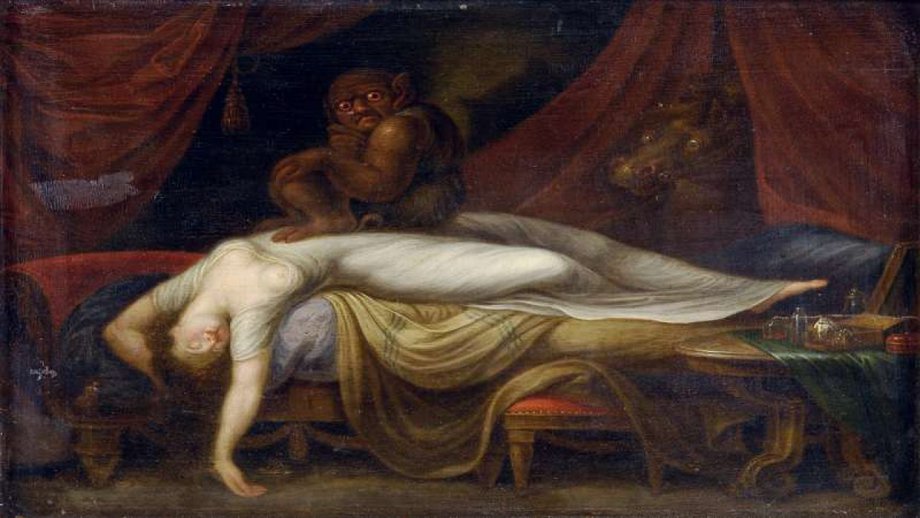What Is Parasomnia and How to Minimize Its Effects

Parasomnia is a complex sleep disorder characterized by abnormal behaviors, experiences, and movements during sleep. This article aims to provide an understanding of parasomnia, its common types, causes, and triggers, as well as its impact on daily life.
Additionally, strategies to minimize the effects of parasomnia will be discussed. Seeking professional help for parasomnia is also emphasized in order to ensure appropriate management of the condition.
By addressing this topic, individuals can gain insights into parasomnia and take necessary steps to improve their sleep quality.
Key Takeaways
- Parasomnia is a sleep disorder characterized by abnormal behaviors, experiences, and movements during sleep.
- Genetics play a significant role in the development of parasomnia.
- Parasomnia can have implications for mental health, including anxiety and depression.
- Sleepwalking and night terrors are common types of parasomnia.
Understanding Parasomnia
Parasomnia is a sleep disorder characterized by abnormal behaviors, such as sleepwalking and night terrors, during the sleep cycle. Research suggests that genetics play a significant role in the development of parasomnia. Studies have shown that individuals with a family history of parasomnia are more likely to experience these abnormal behaviors themselves. Genetic factors contribute to the underlying neurological abnormalities that lead to parasomnia, although the specific genes involved have not been fully identified.
In addition to the impact on sleep quality and daytime functioning, parasomnia can also have implications for mental health. The disrupted sleep patterns and associated distress can contribute to the development or exacerbation of various mental health conditions, including anxiety and depression. Understanding the genetic basis and mental health implications of parasomnia is crucial for the development of effective interventions and treatments.
Common Types of Parasomnia
This discussion will focus on two common types of parasomnia: sleepwalking and night terrors.
Sleepwalking, also known as somnambulism, is characterized by complex behaviors during sleep, such as walking or performing activities while still asleep. The causes and prevention strategies for sleepwalking will be examined.
Additionally, management techniques for night terrors, which are intense episodes of fear or terror during sleep, will also be discussed.
Sleepwalking Causes and Prevention
One significant aspect to consider regarding sleepwalking is the identification of potential causes and the implementation of preventive measures.
Sleepwalking, also known as somnambulism, can be triggered by various factors. These triggers include sleep deprivation, irregular sleep schedules, certain medications, alcohol consumption, and underlying medical conditions such as sleep apnea or restless leg syndrome. Additionally, stress and anxiety can contribute to the occurrence of sleepwalking episodes.
To prevent sleepwalking, several techniques can be employed. Maintaining a regular sleep schedule and ensuring adequate sleep duration can help reduce the likelihood of sleepwalking. Creating a relaxing bedtime routine and minimizing stressors before sleep can also be beneficial. Removing potential hazards from the sleep environment, such as sharp objects or obstacles, can help prevent injuries during sleepwalking episodes. Furthermore, seeking medical advice and treatment for any underlying medical conditions can aid in the prevention of sleepwalking.
Night Terrors Management Techniques
Night terrors, also known as sleep terrors, can be managed effectively through the implementation of various techniques.
Night terrors are characterized by sudden awakenings from sleep, accompanied by intense fear and often associated with screaming or thrashing.
Treatment options for night terrors include both pharmacological and non-pharmacological approaches.
Pharmacological interventions may involve the use of medications such as benzodiazepines or tricyclic antidepressants to reduce the frequency and severity of night terrors. However, these medications may have potential side effects and are typically used as a last resort.
Non-pharmacological interventions focus on creating a conducive sleep environment and promoting healthy sleep habits.
Natural remedies for night terrors include relaxation techniques, such as progressive muscle relaxation or deep breathing exercises, as well as establishing a regular sleep schedule and practicing good sleep hygiene.
Additionally, providing a safe and comfortable sleep environment can help alleviate night terrors.
Causes and Triggers of Parasomnia
This discussion will explore the causes and triggers of parasomnia, focusing on three key points: genetic predisposition to parasomnia, stress and sleep disturbances, and the influence of medications and substances.
Genetic predisposition plays a crucial role in the development of parasomnia, as certain individuals may be more prone to experiencing these sleep disorders due to inherited factors.
Additionally, stress and sleep disturbances have been identified as common triggers for parasomnia episodes, with heightened levels of stress and disrupted sleep patterns contributing to the occurrence and severity of these sleep disorders.
Furthermore, the use of certain medications and substances, such as alcohol and sedatives, can also exacerbate or even induce parasomnia episodes.
Genetic Predisposition to Parasomnia
Genetic predisposition to parasomnia has been studied extensively to understand its influence on the occurrence and severity of parasomnias. Research has demonstrated that certain genetic factors can increase the likelihood of experiencing parasomnia episodes.
Family history plays a crucial role in identifying potential genetic predisposition, as parasomnia can run in families. Genetic testing has been used to identify specific genes or genetic variations that may be associated with an increased risk of parasomnia.
By examining the genetic makeup of individuals and their family members, researchers have been able to identify specific genetic markers that may contribute to the development of parasomnias.
Understanding the genetic predisposition to parasomnia can provide valuable insights into the underlying mechanisms and potentially lead to more targeted treatment approaches in the future.
Stress and Sleep Disturbances
Stress has been identified as a significant factor contributing to sleep disturbances, with research suggesting a bidirectional relationship between stress and disrupted sleep patterns. High levels of stress can lead to difficulty falling asleep, maintaining sleep, and experiencing restful sleep. In turn, disrupted sleep can further exacerbate stress levels, creating a cycle of sleep problems and increased stress.
Effective stress management techniques have been shown to improve sleep quality. These techniques include cognitive-behavioral therapy, relaxation exercises, mindfulness meditation, and physical activity. Cognitive-behavioral therapy helps individuals identify and modify negative thought patterns that contribute to stress and sleep disturbances.
Relaxation exercises, such as deep breathing and progressive muscle relaxation, can help reduce stress and promote relaxation before bedtime. Mindfulness meditation practices encourage present moment awareness and can help calm the mind before sleep. Engaging in regular physical activity has also been associated with improved sleep quality and reduced stress levels.
Overall, implementing stress management strategies can contribute to better sleep quality and overall well-being.
Medications and Substances
Medications and substances can have significant impacts on sleep quality and can contribute to sleep disturbances. Many medications, such as antidepressants, antihistamines, and stimulants, have known side effects that can disrupt normal sleep patterns.
For instance, certain antidepressants may cause insomnia or excessive sleepiness, while antihistamines can lead to drowsiness during the day and wakefulness at night. Stimulants, often prescribed for attention deficit hyperactivity disorder (ADHD), can cause difficulty falling asleep and maintaining sleep.
Additionally, substances like caffeine, nicotine, and alcohol can also interfere with sleep. Caffeine, a central nervous system stimulant found in coffee and energy drinks, can delay sleep onset and reduce total sleep time. Nicotine, a stimulant found in cigarettes, can disrupt sleep and lead to lighter, less restful sleep. Alcohol, a sedative, may initially induce drowsiness but can disrupt the sleep cycle and result in fragmented and poor-quality sleep.
It is important to consider the potential side effects of medications and substances on sleep quality and to discuss any concerns with a healthcare professional.
Impact of Parasomnia on Daily Life
Parasomnia has been shown to significantly disrupt various aspects of an individual’s daily life. Two key areas where parasomnia can have a significant impact are relationships and productivity at work.
In terms of relationships, parasomnia can strain the bond between partners or family members. The disruptive sleep behaviors associated with parasomnia, such as sleepwalking or night terrors, can cause fear, confusion, and frustration for those who witness these episodes. This can lead to a breakdown in communication and intimacy, ultimately affecting the quality of relationships.
Furthermore, the impact of parasomnia on productivity at work cannot be underestimated. Sleep disturbances caused by parasomnia can result in excessive daytime sleepiness, reduced concentration, and impaired cognitive function. This can lead to decreased productivity, increased errors, and even accidents in the workplace.
To better understand the impact of parasomnia on relationships and productivity at work, refer to the table below:
| Aspect | Impact of Parasomnia |
|---|---|
| Relationships | Strained bonds, fear, confusion, breakdown in intimacy |
| Productivity at work | Decreased productivity, reduced concentration |
Strategies to Minimize Parasomnia Effects
To mitigate the impact of sleep disturbances, individuals can employ a variety of strategies aimed at improving sleep quality and reducing disruptive behaviors during sleep.
One such strategy is maintaining good sleep hygiene. This involves creating a sleep-friendly environment, such as keeping the bedroom dark, quiet, and at a comfortable temperature. Additionally, establishing a consistent sleep schedule and avoiding stimulating activities before bedtime can help promote better sleep.
Another strategy is practicing relaxation techniques. These techniques, such as deep breathing exercises, progressive muscle relaxation, and mindfulness meditation, can help relax the mind and body, making it easier to fall asleep and stay asleep.
Seeking Professional Help for Parasomnia
Seeking professional help for sleep disturbances can provide individuals with valuable guidance and support in managing their condition and improving their overall sleep quality. Professional treatment for sleep disturbances, such as parasomnia, often involves therapy options that are tailored to each individual’s specific needs.
Some therapy options that may be recommended by professionals include:
- Cognitive Behavioral Therapy (CBT): This type of therapy aims to identify and change negative thoughts and behaviors that may be contributing to sleep disturbances. It can help individuals develop healthier sleep habits and cope with any underlying stress or anxiety.
- Medication Management: In some cases, medication may be prescribed to help manage sleep disturbances. These medications can help regulate sleep patterns and improve overall sleep quality.
Frequently Asked Questions
Can Parasomnia Be Cured Completely?
The potential for complete cure of parasomnia is uncertain. Long-term effects and treatment options vary depending on the specific type and severity of the parasomnia. Further research is needed to better understand and manage this condition.
How Long Does Parasomnia Usually Last?
The duration of parasomnia varies depending on the specific type and individual factors. Factors that may influence the duration include underlying causes of parasomnia and the effectiveness of treatment options utilized.
Is Parasomnia a Genetic Condition?
Parasomnia is a sleep disorder characterized by abnormal behaviors and experiences during sleep. While the exact causes of parasomnia are not fully understood, research suggests a potential genetic component. Treatment options for parasomnia focus on minimizing symptoms and improving sleep quality.
Can Stress and Anxiety Worsen Parasomnia Symptoms?
The exacerbation of parasomnia symptoms by stress and anxiety has been documented in research. Additionally, the impact of medication on parasomnia symptoms has been investigated, providing insights into potential treatment options.
Is It Safe to Wake Someone up During a Parasomnia Episode?
The safety of waking someone up during a parasomnia episode depends on the specific type of parasomnia and the individual’s condition. Ways to prevent parasomnia episodes and treatment options for parasomnia should be considered.







